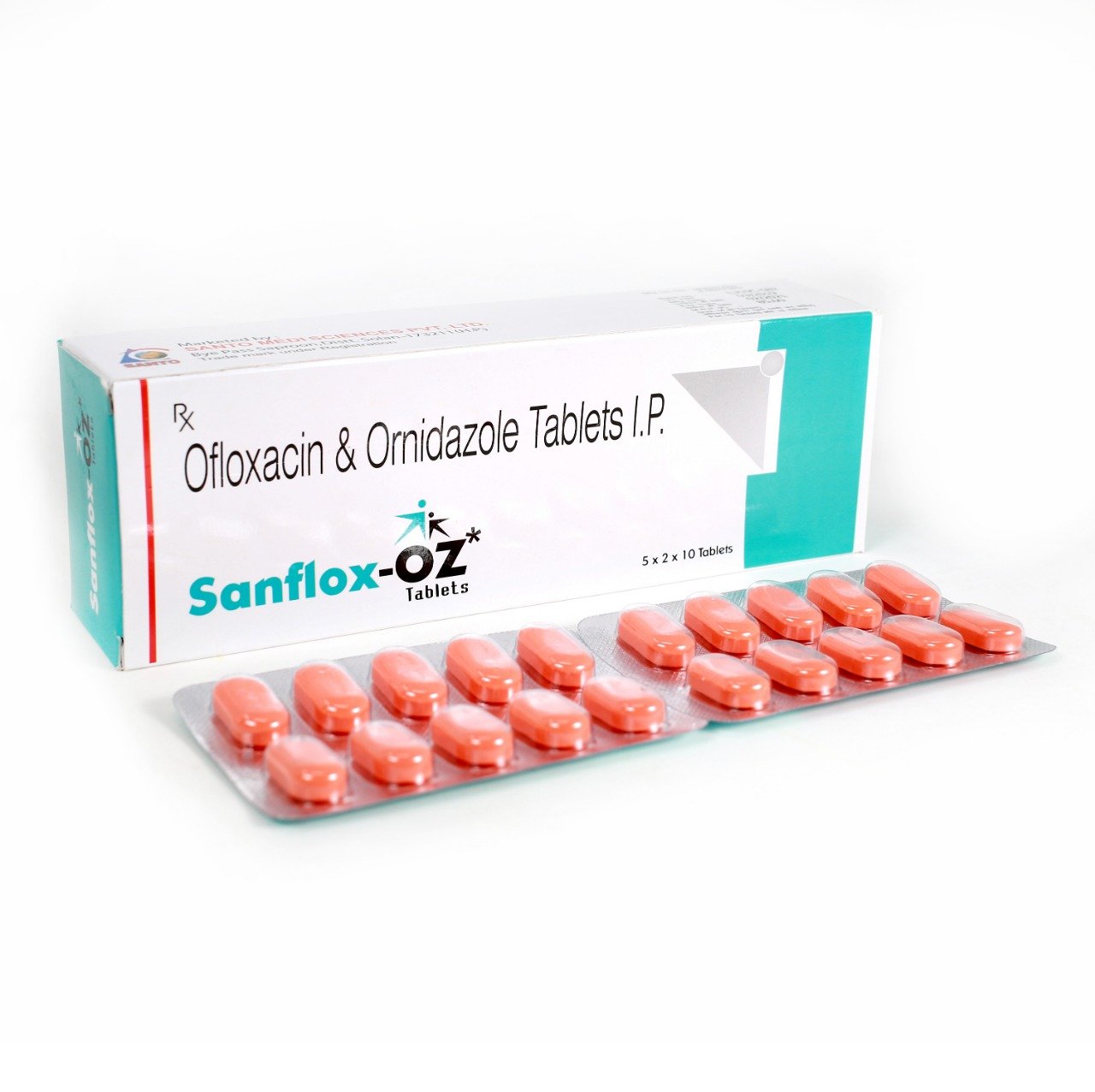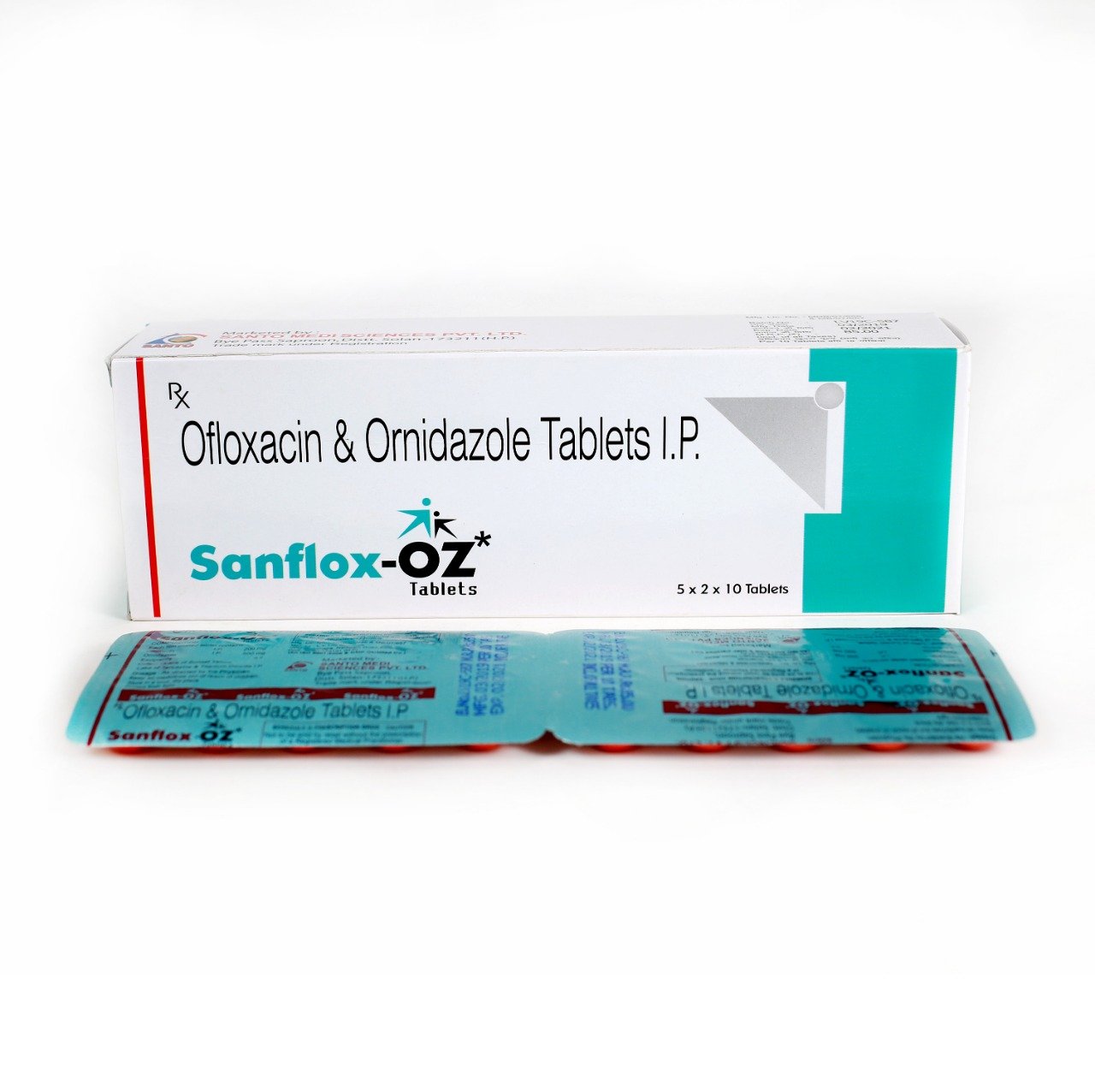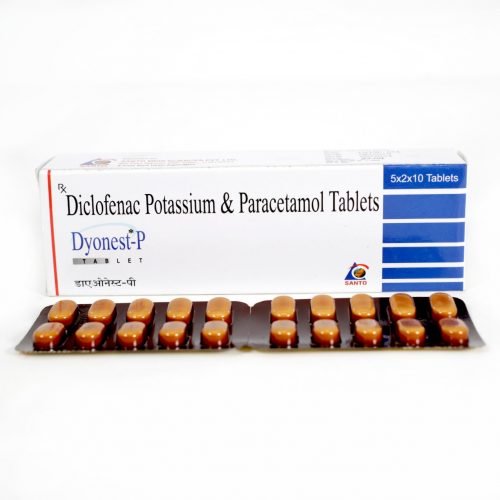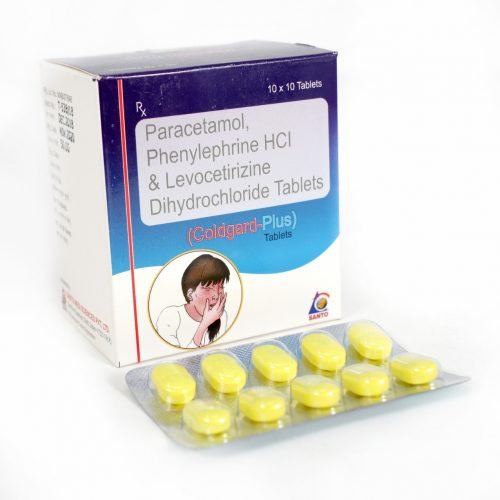- 01792-220191, 09839141955, 06390845955
- SCO No. 2 & 3, Block-B;Office No.-249A; 2nd Floor, Motia Plaza Baddi-173205; Distt. Solan (H.P.)

SANFLOX-200
September 19, 2019
SANSPAS
September 19, 2019SANFLOX-OZ
| Brad Name | Sanflox-OZ |
| Composition | Ofloxacin 200 MG + Ornidazole 500 mg Tablets |
Ofloxacin 200 mg + ornidazole 500 mg
Ofloxacin is a second generation fluoroquinolone(quinolones) antibiotic. It act by inhibiting the enzyme DNA gyrase (Topoisomerase 2) and Topoisomerase 4. It stops the multiplication of bacteria by inhibiting the reproduction and repair of the genetic material. It is used for treating certain kinds of bacterial infections (ear infections, urinary tract infections) and also useful in pelvic inflammatory disease.
Ornidazole is a nitro imidazole which has broad spectrum cidal activity against Protozoa and some anaerobic bacteria.It is a drug that cures some protozoan infections. This antibacterial agent effective against a wide variety of Gram-negative and Gram- positive aerobic bacteria.
Indications
- Diarrhea & dysentery
- Diabetic ulcers
- Gynaecological infections
- Pre & post surgical infections
- Skin & soft tissue infections
Dosage
One tablet daily for 5-10 days
Contraindication
Blood dyscrasis, active CNS disease, hypersensitivity, serious neurological disease. Seizures, Severe Hepatic Failure.
Precautions
- Patients being treated with ofloxacin should not expose themselves unnecessarily to strong sunlight and should avoid UV rays (sun lamps, solaria).
- Caution is recommended if the drug is to be used in psychotic patients or in patients with a history of psychiatric disease.
- Administration of antibiotics, especially of prolonged, may lead to proliferation of resistant micro-organisms. The patient’s condition must therefore be checked at regular intervals. If a secondary infection occurs, appropriate measures must be taken.
- Regular laboratory tests and clinical control are indicated in case of use of high ornidazole doses or if duration of therapy exceeds 10 days.
- Leukocyte counts should be checked before and after start of therapy (especially in repeat therapy), in patients with history of blood disorders.
- Severe diseases of central and peripheral nervous system may get aggravated on ornidazole therapy. Treatment should be discontinued in case of onset of peripheral neuropathy, ataxia, vertigo or confusion.
- Ornidazole therapy may aggravate existing candidiasis. Necessary precautions should be taken.
Side effects
Nausea and vomiting, diarrhoea, abdominal pain, gastric symptoms, loss of appetite, increase in liver enzymes and/or bilirubin, cholestatic jaundice, hepatitis, Headache, dizziness, sleep disorders, restlessness, confusion, nightmares, anxiety, depression, hallucinations and psychotic reactions, drowsiness, neuropathy, numbness and paraesthesia or hypaesthesiae, visual disturbances, disturbances of taste and smell, convulsions, hearing disorders, psychotic reactions and depression, tachycardia and a temporary decrease in blood pressure, circulatory collapse, anaemia, leucopenia, thrombocytopenia, pancytopenia, disturbances of kidney function, acute interstitial nephritis, skin rash, itching. rash on exposure to strong sunlight, hypersensitivity reactions, tachycardia, fever, dyspnoea, shock, angioneurotic oedema, vasculitic reactions, eosinophilia, pneumonitis, malaise, weakness, joint and muscle pains
Drug interactions
- Oral Anticoagulants: The effects of oral anticoagulants, may be increased.
- Theophylline: Increased plasma levels of theophylline resulting in toxicity.
- NSAID`s: CNS excitation may occur
- Co-administered magnesium/aluminium antacids, sucralfate or iron preparations can reduce absorption.
- Ofloxacin may cause a slight increase in serum concentrations of glibenclamide administered concurrently; patients treated with this combination should be closely monitored.
- With high doses of quinolones, impairment of excretion and an increase in serum levels may occur when co-administered with other drugs that undergo renal tubular secretion (e.g. probenecid, cimetidine, frusemide and methotrexate).
- Interaction with laboratory tests: Determination of opiates or porphyrins in urine may give false-positive results during treatment with ofloxacin.
- Alcohol intolerance: Unlike other nitro-imidazoles, ornidazole does not inhibit enzyme aldehyde dehydrogenase. No disulfiram like reaction has been reported on consumption of alcohol. However, as is the case with all imidazoles, this drug should be avoided in concomittance with alcohol usage






